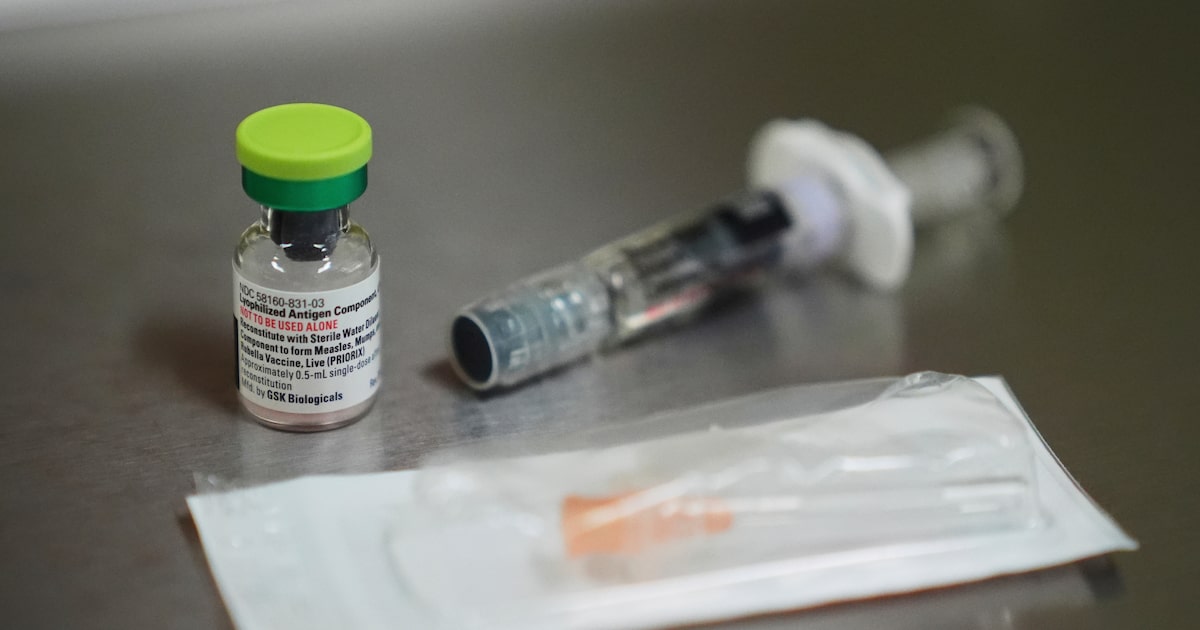Thanks for story on vaccines, autism
Re: “Experts: Vaccines, autism not linked — Debunked idea sees new life, but mountain of research is clear,” Tuesday news story.
Thank you for the excellent reporting in this story. The reporter clearly retraces the origins of the long-debunked myth connecting vaccines to autism and highlights the overwhelming body of research — spanning decades, continents and more than a million children — showing there is no link. This shouldn’t be controversial, yet it persists because some continue to profit politically and financially from sowing doubt.
Which brings us to U.S. Health Secretary Robert F. Kennedy Jr. For years, Kennedy has built his platform by amplifying vaccine fears. Even more concerning, he previously worked with law firms suing pharmaceutical companies over vaccine-related claims that were already disproven by rigorous science. His career has been shaped not by evidence, but by fueling distrust — often alongside clear financial interests.
The public has every right to ask: How can someone with such a record of promoting misinformation now credibly lead national health policy? And how can a health secretary who spent years undermining vaccines be trusted to protect public health?
Opinion
Thank you for shining light where misinformation persists.
Alan Mock, Frisco
The price for ignorance
Great story on the history behind the myth linking vaccines to autism. The scientific method is one of the greatest human discoveries.
Prior to its discovery, people had no quality process to validate findings. Snake oil salesmen were put in check to some degree after this discovery. But now, with social media, we have managed to ignite a legion of charlatans who have penetrated the political realm with such force to change policy and undermine the scientific method.
We are free people and free to ignore modern scientific findings, but I fear the price we pay for such ignorance will be steep. If we are to find a way to eliminate autism, we must embrace scientific method principles and not go backward with unchecked popular beliefs.
Devin Johnson, Bridgeport
Is Dallas ready for Waymo?
Re: “Dallas getting autonomous Waymo robotaxis in ‘coming weeks,’ ” online story.
This story on Waymo launching driverless robotaxis in Dallas raises a critical question: Are our police, firefighters and EMS teams prepared for this technology?
Austin has been grappling with that issue since 2024, and their experience should give Dallas residents pause.
In a recent KVUE-TV investigative report, Austin Fire Department Capt. Matt McElearney described the current state of autonomous vehicles as “the wild west,” noting that state law prevents local agencies from enforcing even basic safety standards. He and other first responders reported that Waymo vehicles sometimes fail to respond to hand and arm signals, block traffic, and that departments face resistance when requesting video or sensor data needed to investigate incidents.
In Georgia, the National Highway Traffic Safety Administration is investigating an incident where a Waymo vehicle drove past a stopped school bus that had its warning lights flashing.
Despite years of operating in Austin, the most fundamental questions remain unresolved: How do you override a confused AV? Who is responsible when it breaks the law? How do first responders get critical information in real time?
Meanwhile, Waymo co-CEO Tekedra Mawakana recently said society will accept a death caused by one of her company’s robotaxis. That should alarm every Dallas resident.
Before Waymo deploys here, the public deserves transparency, enforceable safety rules and clear answers — not assumptions.
Amy Witherite, Dallas
City should consider leasing City Hall
As we all know, not everyone should own property. Some entities are better off leasing. The city of Dallas is one of those entities. Its track record on real estate puts it in the “we should lease” group.
Recently, the city bought a property at 7800 N. Stemmons Freeway, which has proven to be an unfixable money pit. Now the city is putting the building up for auction in order to attempt getting back a portion of the money put into this boondoggle.
Of course, the city has encountered issues with trying to manage Fair Park, showing it to be incompetent and a terrible manager of taxpayer money when it comes to real estate.
Now, the city is in a dilemma on how to navigate where they are going to be housed over the next several decades. The current location, which city leaders have let run down to the point of repairs costing up to $345 million, is still its best option.
As stated at a recent town hall meeting, the current location was built for government work, not as an office building for companies. Sell the building and lease it back. Find a buyer willing to make needed repairs and in turn, the city signs a long-term agreement to lease back. Saves on moving, too!
Doug Edwards, Rowlett
City Hall is striking, at least
Re: “Save Dallas City Hall,” by Jim Stodola, Tuesday Letters.
This letter writer holds a degree in architecture and states that the building should be saved because Dallas doesn’t have “that many good-looking buildings.” Perhaps it’s a matter of personal taste rather than architectural beauty, but is it really that good looking? It is unique, I’ll give you that.
Not for nothing though was the building featured in Robocop, the movie, as the headquarters of an evil corporation. I’m certainly no architect but to me the building looks, well, a bit foreboding. And that has been the case.
Dan Siculan, Royse City
Seeing the light?
Perhaps the truth has set Marjorie Taylor Greene free.
Judy Giese, Denton
